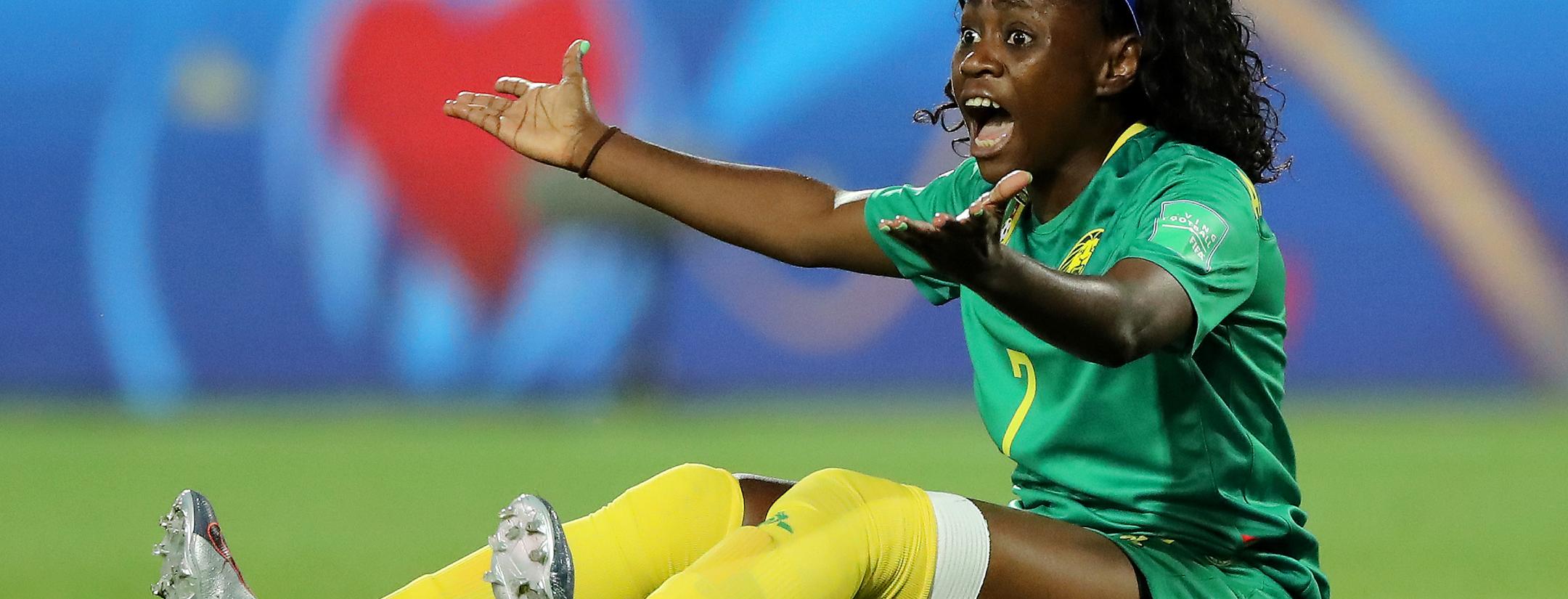LONDON — Women's soccer around the world is being held back due to a continuing lack of basic employment rights and standards at international competitions, a report from global players' union FIFPro has said.
The document, published on Wednesday, says that being a professional soccer player is still not a viable career option for women in many parts of the world, despite record attendances at matches over the past year.
"The professional women’s game is subject to adverse labour conditions which negatively impact the sporting performance of players, pose direct obstacles to the development of their potential or force them to leave the game early," the report said.
"As such these conditions not only infringe on the basic rights of players but also block the growth of the industry."
Players had a significant input into the research, as FIFPro surveyed 186 players from 18 different countries who had qualified for last year's World Cup in France.
While FIFPro's research did show that average player salaries had risen from 2016 to 2018, a minority were still not receiving any financial reward.
"3.6% of players taking part in our 2019 FIFPro Female Player Survey reported not receiving any money to play; this is unacceptable. These are women competing in FIFA Women’s World Cups and playing at the top of the game," the report said.
To combat this, FIFPro recommended written contracts to be agreed under the auspices of the clubs, leagues and federations in order to fulfil the minimum labour standards.
They also called for facilities suitable for a high-performance standard at international competitions. FIFA came in for criticism in 2015 when they allowed astroturf pitches to be used at the Women's World Cup in Canada.
In club football, 105 players said they were not confident of what their side's long-term strategy was. More than half of those surveyed felt their club was understaffed and did not feel adequately supported.
The document also highlighted the sub-standard conditions that some players faced, using a report published at the end of last year by Colombian players union Acolfutpro that analysed working conditions in the country's top-flight female league.
"They found that eight out of 20 training pitches used by teams in the 2019 women’s championship, Liga Aguila, were not suitable for professional football. Some were unsafe, others were uneven or without grass, and most did not have changing rooms or showers," it said.
However, there was a direct challenge to sponsors and media to do their part in helping the game grow and reach parity with the men's game.
"The commitment of sponsors, media and other partners sends a strong message to the market and bolsters the industry," it said.
"A viable business case is important to ensure financial sustainability and a stable market, but the business case must not be used to justify the movement. Female players deserve the right to professional careers as footballers."
The major soccer competitions, like much of global sport, are paused due to the COVID-19 pandemic. FIFPro told Reuters that the recent progress made in the women's game risked being undone by the pandemic.
(Reporting by Christian Radnedge. Editing by Toby Davis)




